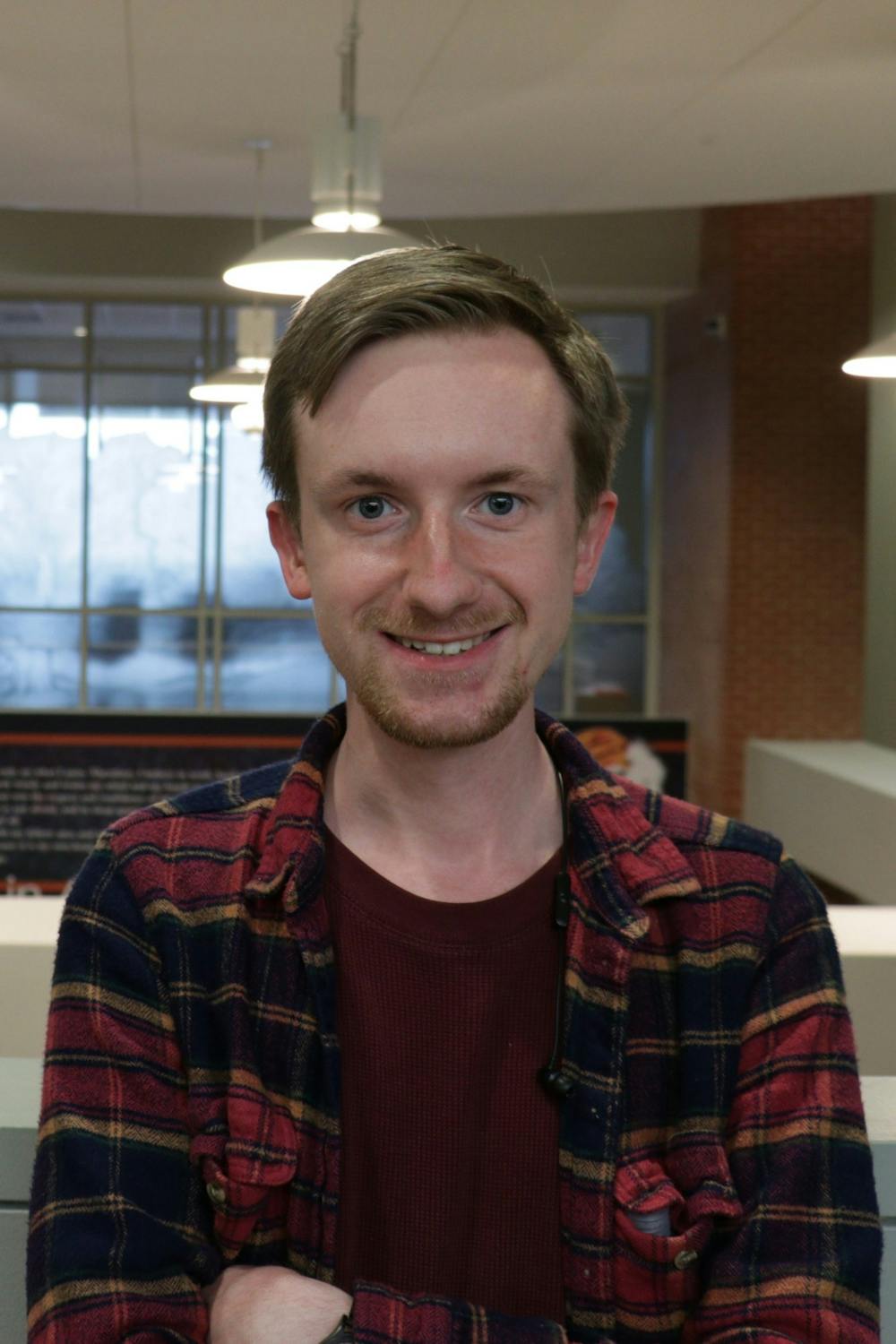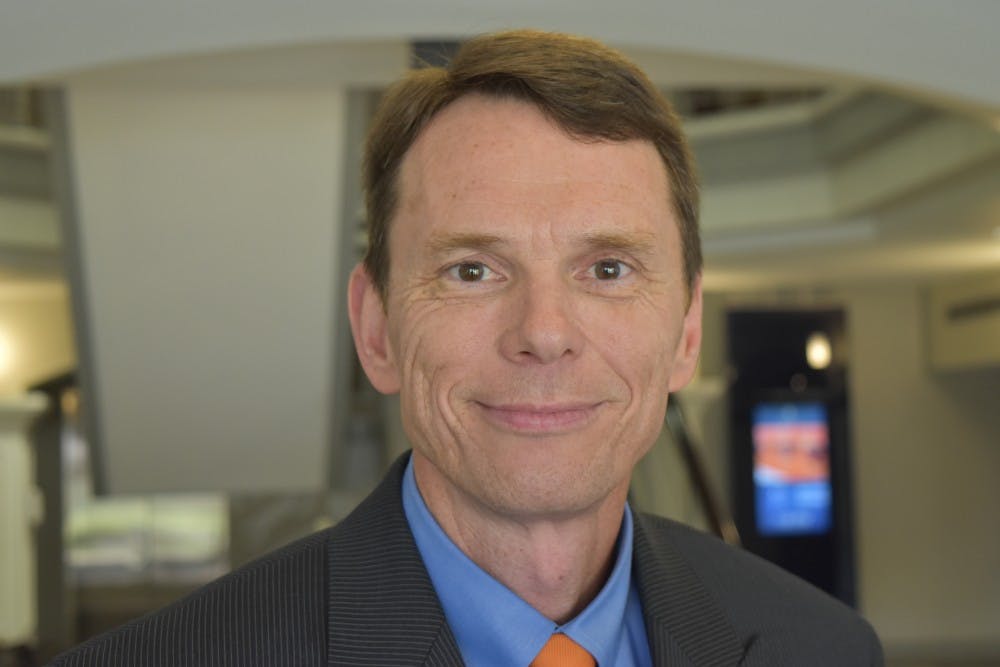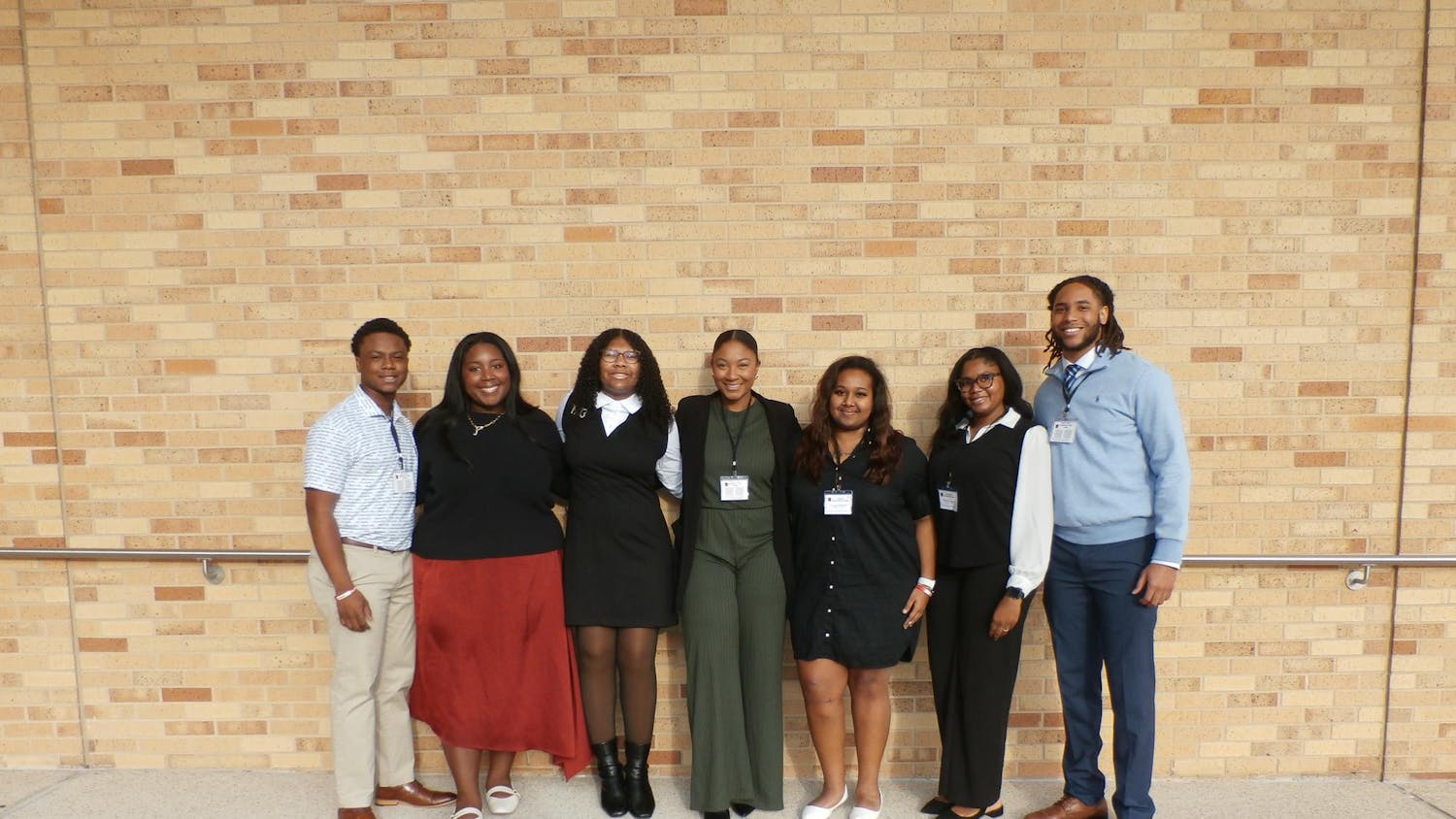Tension rose among Auburn professors and lecturers at a specially called meeting of the Faculty Senate Executive Committee on Nov. 10, where faculty had reservations about the University’s current spring 2021 semester plans. Provost Bill Hardgrave, who was the subject of a potential vote of no confidence, cleared the air on Tuesday afternoon, answering questions raised last week during the latest meeting of the Auburn University Senate over Zoom.
Hardgrave said his office was aware of issues raised in the specially called meeting as well as recommendations for the spring semester from the Auburn chapter of the American Association of University Professors.
“I am in receipt of the seven recommendations that came out of that meeting,” Hardgrave said. “I would say that many of the things on that list of recommendations we are already doing, we are in the process of doing or have already addressed in some way.”
One recommendation asked the University to share the numbers on faculty requests for specific modes of instruction, as well as how many were approved or denied. Hardgrave obliged, reporting that approximately 458 faculty teaching 1,130 sections were approved to teach online or blended classes.
“Those 1,130 sections are in addition to the online sections we normally teach in the spring, so I am not counting those,” he explained. “I am aware of only 17 faculty who have not been accommodated per their request.”
Hardgrave said he was told one or more faculty were still awaiting approval, but said he contacted the respective deans to see that these faculty members would be heard as soon as possible.
“If there are any appeals to that process, I sent out a reminder yesterday with that process,” Hardgrave concluded. “Faculty should follow that process if they want to appeal the decision from their college or school.”
More faculty were added to the University’s COVID operations committee in the past week as requested by the Auburn AAUP, Hardgrave said. Previously, only two of the 33 members on the committee were faculty.
Before speaking further, Hardgrave said faculty still have unresolved concerns the University should settle.
“Look, I get it, people are scared; the current headlines are scary,” he said. “We don’t know what it’s going to look like [in spring]. When will a vaccine be available?”
Springing off this, Hardgrave shared that he met with two executives from two unnamed “major hospital systems” on Tuesday. Each told him the recent Pfizer and Moderna COVID-19 vaccines should be available to the general public by April 1, 2021, he said.
Still, Hardgrave said there is potential for Auburn’s campus to shift to remote operations again for spring. The spring semester could start remotely, he said, if the virus situation worsens. Hardgrave believes the University’s decision to work remotely for final exams after Thanksgiving was sensible.
“If it’s not safe to be on campus, we won’t be on campus,” he said. “We have demonstrated this last spring, and we’ve been able to keep a safe campus this fall. At the beginning of fall semester, it looked bleak. We were watching [other universities] diligently, and then we started making changes to the policies and practices. It turned around, and we had a safe semester.”
Hardgrave said policies continue to be adjusted based on the outlook of the pandemic. The University announced on Tuesday afternoon that faculty will not have to return to their offices on campus in person on Nov. 30. Instead, the current operations model has been extended to Jan. 3, 2021, around one week before students return for spring classes.
Questions from faculty began with Dr. Spencer Durham, associate clinical professor of pharmacy, who asked how Auburn might ensure safety in non-classroom settings.
“I think ... people have gotten lax with wearing their face coverings or social distancing, especially in a restaurant environment,” Hardgrave responded. “We all have to be more diligent in the following of those protocols, and we have to make sure that ... across campus [we are] encouraging and enforcing those protocols as we finish up the semester ... [as well as] going into the spring.”
Jennifer Prado, chemistry and biochemistry lecturer, asked the provost if faculty could request that students submit a self-report confirmation if a student requests accommodations because they tested positive for COVID-19.
Hardgrave said this could only happen if the student voluntarily shares their test result with faculty. The faculty member could then encourage the student to self-report, he said.
“We could never ask anybody, ‘Have you tested positive?’” he said. “We could never ask for a list of people who have tested positive; that’s a violation of privacy.”
Hardgrave said he understands faculty want the University to more strongly encourage use of the GuideSafe Healthcheck screener. He also noted that faculty should be provided with documentation on students not attending class because they were exposed to COVID-19 and are having to quarantine.
Tracy Witte, professor of psychology, said she thinks if the University decides to begin spring remotely at the “last minute,” professors’ spring plans could be disrupted.
Hardgrave agreed with Witte’s thoughts, but he reminded the senate of the University’s “Syllabus B” guidance, where professors are asked to have a backup course plan if teaching circumstances change.

When the fall semester began, individuals on campus were asked to wear face coverings outdoors starting the second day of classes, a policy that was later rescinded. Luca Guazzotto, associate professor of physics, asked if this policy might be reintroduced in spring with more students present.
“Everything is back on the table to have that discussion,” Hardgrave answered, saying he would discuss this with members of the administration.
Alecia Douglas, associate professor of nutrition, dietetics and hospitality management, asked how the University will work to accommodate face-to-face classes and feels Auburn has had a false sense of security with less people present this semester. She said other institutions have universally placed Plexiglas around lecterns and removed seats in some rooms.
“Let us know what we can do to make you feel safer,” Hardgrave said. “If you want Plexiglas, let us know and we’ll work with you. Some faculty use face shields because they find it easier to talk when they’re standing a distance away.”
Hardgrave acknowledged previous comments about the practicality of face shields, agreeing that they are “not a substitute for a mask.” However, he said the ones Auburn provides extend below the chin and are curved, which should contain air particles of the wearer if they are distanced from students.
Mary Sandage, associate professor of speech, language and hearing sciences, expressed concern about how graduate clinical trials in her program might be managed. Sandage said students who have delayed trials would have extended programs and delay prospective students from beginning their programs.
The professional flight, veterinary medicine and pharmacy programs had similar issues with situations where face-to-face instruction was required to teach, Hardgrave said.
“Even if we go remote, ... under strict protocols, we could allow some face-to-face [teaching],” he said. “If we do pivot to remote, reach out to my office and we will work with you.”
One of the final questions came from Scott Ketring, associate professor and director of the marriage and family therapy program, who asked if there would be campus-wide reentry testing at the start of spring similar as was performed when students returned for fall.
“There’s been lots of discussion around this entry testing, and the general sentiment is ... it [only] gives you that one point in time,” Hardgrave responded. “We did it this fall because the state provided that for us [and] paid for it through CARES Act funding. It’s probably not worth the money to do that for students coming in.”
Hardgrave said this is why the University instead moved the spring start date to Jan. 11, 2021, after consulting with Dr. Fred Kam, director of the Auburn University Medical Clinic. This should allow students to weather the “most contagious period” of the winter break, Hardgrave said.
Do you like this story? The Plainsman doesn't accept money from tuition or student fees, and we don't charge a subscription fee. But you can donate to support The Plainsman.

Tim Nail, junior in journalism, is the campus editor for The Auburn Plainsman.





